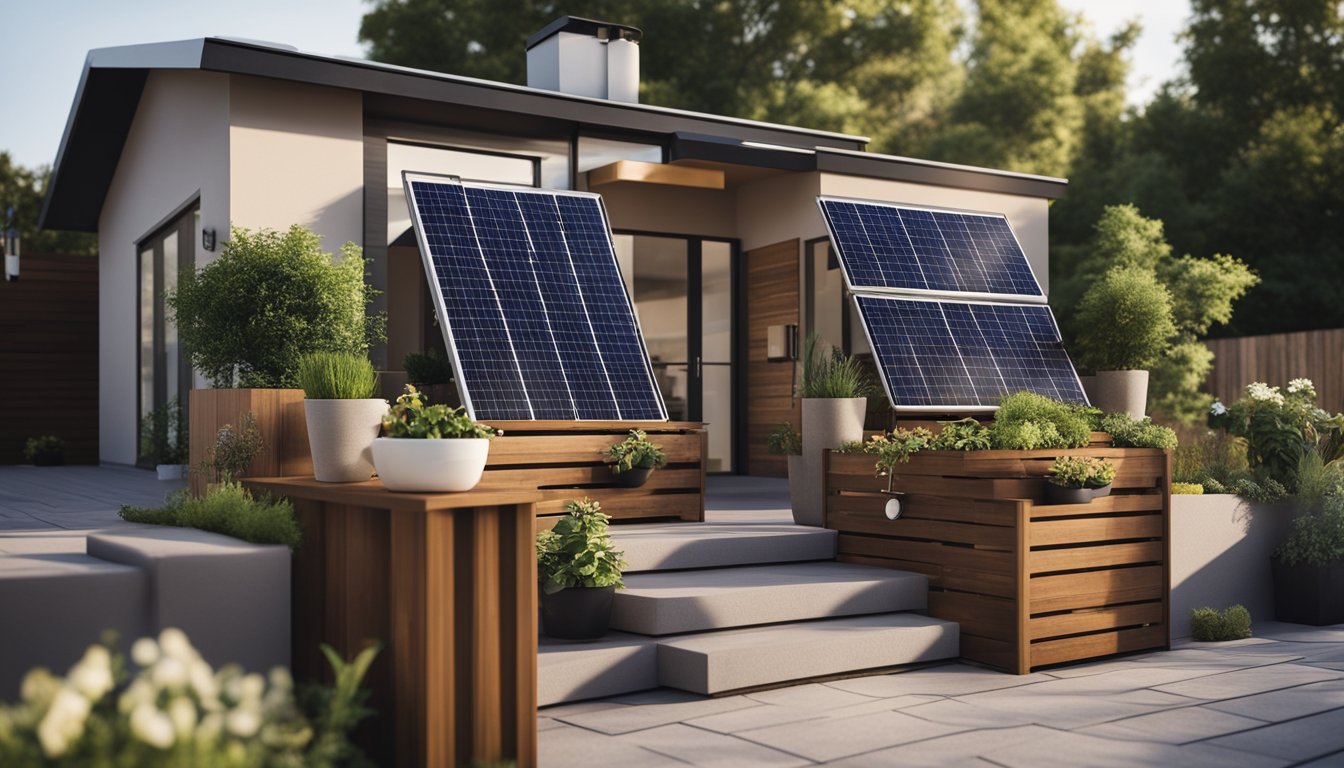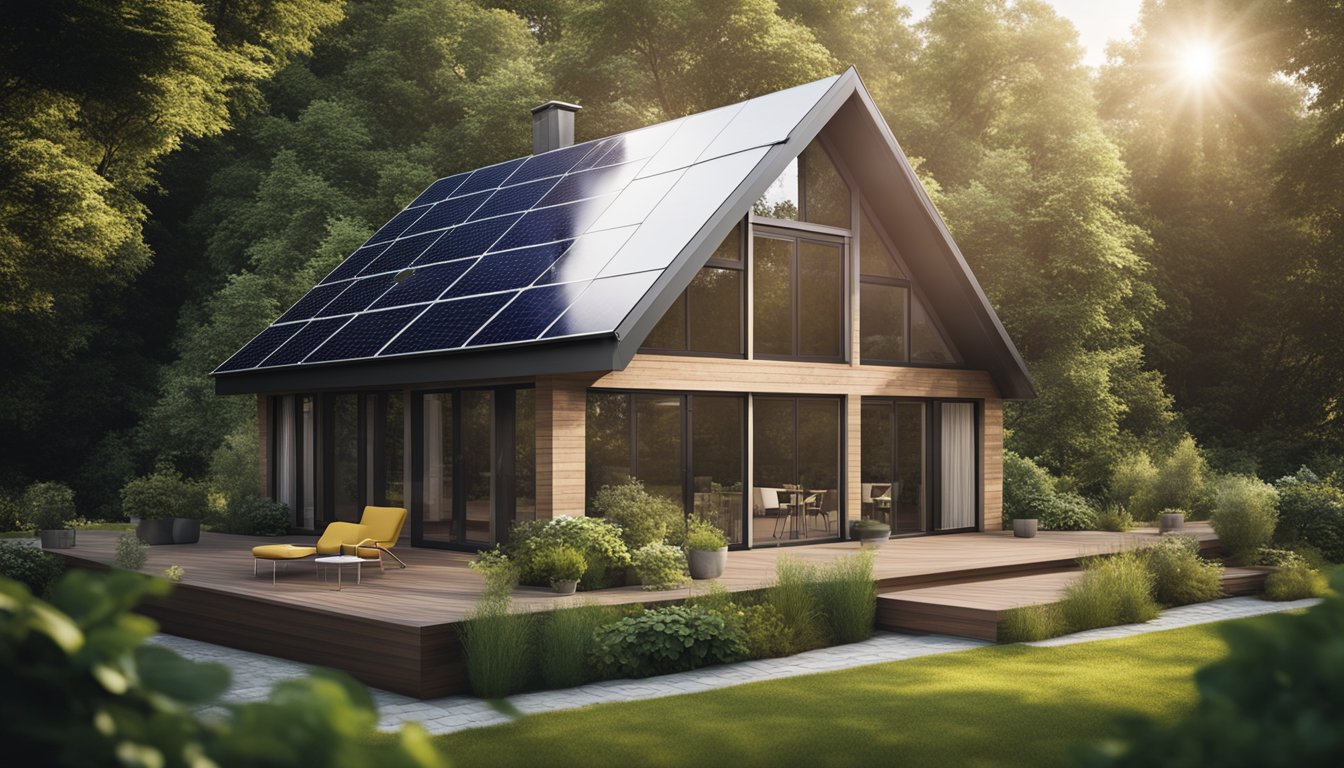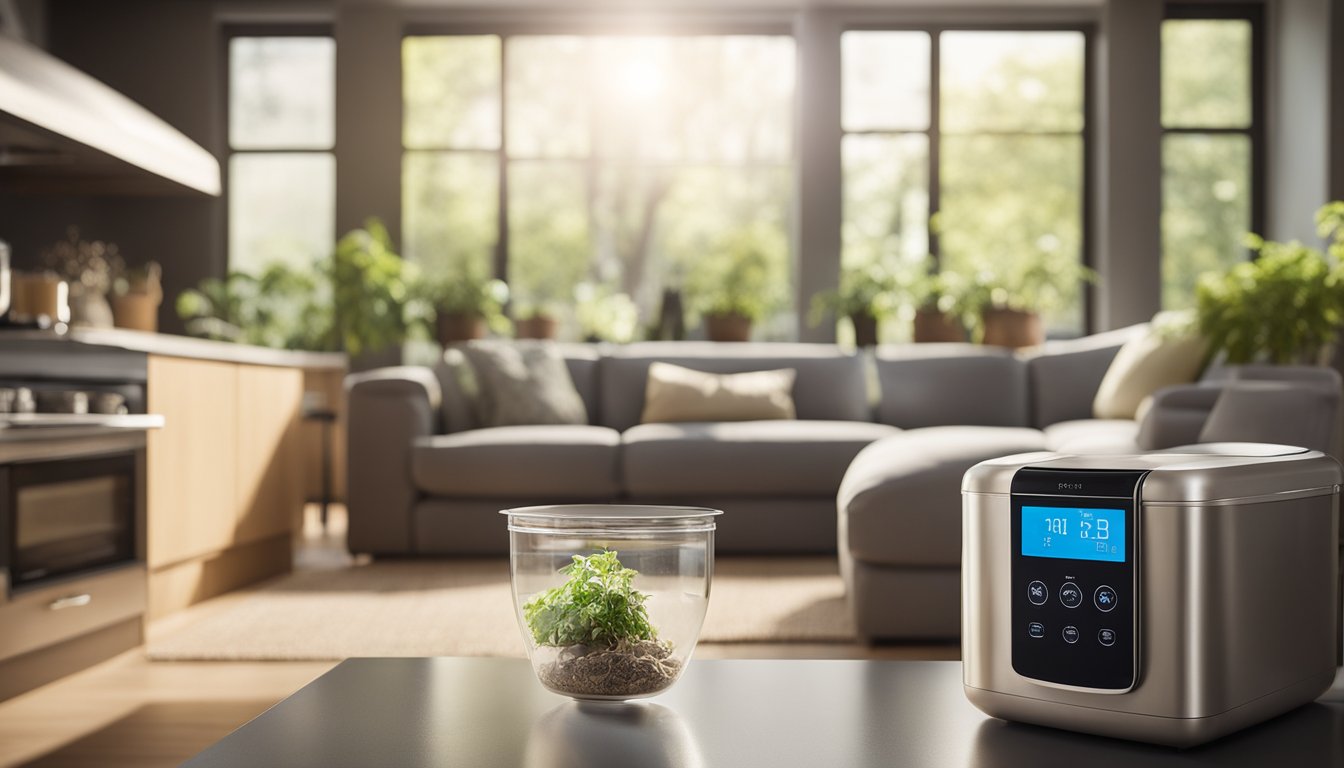Late updated: 12 Oct 2024 13:10
Written by: Sarah Hollister
Eco-Friendly Energy Saving Tips For Your Home: Practical Ways to Reduce Costs
Exploring ways to make our homes more eco-friendly not only benefits the planet but can also lead to substantial savings on utility bills. Living sustainably does not have to be a daunting task. In fact, implementing simple energy-saving tips can make a significant difference. Investing in proper home insulation can reduce heating and cooling costs by up to 30%, offering noticeable savings and reducing our carbon footprint.

Energy-efficient appliances provide another layer of savings by lowering electricity consumption. This includes using LED bulbs and switching to energy-efficient models of everyday household items. We can also adopt small changes in our daily habits, such as diligent maintenance of appliances like cleaning fridge coils, which can enhance efficiency.
Another effective strategy is the adoption of smart technology, like smart thermostats, to regulate home energy use effectively. By understanding where energy is consumed the most, we can make informed decisions to cut unnecessary usage.
Key Takeaways
- Proper insulation maximises energy efficiency at home.
- Switching to energy-efficient appliances reduces electricity use.
- Smart technology helps optimise home energy consumption.
Maximising Energy Efficiency in Home Insulation and Windows

Insulation and windows play critical roles in enhancing a home's energy efficiency. By addressing these areas, we can significantly reduce our energy consumption, lower energy bills, and mitigate greenhouse gas emissions effectively.
Understanding and Improving Home Insulation
Effective insulation minimises the need for excessive heating and cooling, which in turn reduces energy consumption. Adding insulation is one of the most impactful upgrades we can make. Properly insulated attics, walls, and floors prevent heat transfer, keeping our homes warm in winter and cool in summer.
An energy audit is advisable to identify areas that may benefit from added insulation. This process helps pinpoint spots where energy efficiency can be improved, leading to reduced energy bills and a smaller carbon footprint. Insulating materials such as fibreglass, cellulose, and foam have different R-values, reflecting their thermal resistance. The higher the R-value, the more effective the insulation.
Enhancing Windows to Save Energy
Windows are another significant factor in home energy efficiency. Energy-efficient windows can prevent unwanted heat gain and loss, directly impacting our comfort and heating and cooling expenses. Upgrading to double glazing or windows with low-emissivity (low-E) coatings can reduce heat transfer.
Utilising window treatments like insulated curtains or blinds can further enhance energy conservation. Storm windows or other Energy Star-qualified models are available for homes in need of improvement. By optimising these components, we can effectively utilise the sun's passive solar heating and significantly cut down on our reliance on fossil fuels, thus contributing positively to efforts against climate change.
Energy-Saving Strategies for Appliances and Household Habits
In our homes, energy-efficient appliances and mindful habits can significantly reduce energy consumption. By optimising appliance use and modifying daily routines, we can achieve savings while contributing to a more sustainable environment.
Optimising Appliances for Better Energy Use
Energy-efficient appliances play a key role in reducing home energy usage. Choosing Energy Star-qualified models ensures that our equipment meets energy-saving standards. Air conditioners with a high Energy Efficiency Ratio (EER) are particularly effective in regulating temperature more efficiently. Smart thermostats can also help in managing heating costs by adjusting settings based on specific schedules.
Regular maintenance is crucial. Replacing filters in appliances like air conditioners enhances performance. Phantom loads, or standby power, can be tackled with smart plugs or power strips, which help cut off power to devices when not in use.
Adopting Energy-Efficient Daily Routines
Daily practices help us conserve energy effortlessly. Washing clothes with cold water can save up to 90% of the energy usually required to heat water. Line-drying clothes reduces dependence on energy-intensive clothes dryers, and using wool dryer balls can lower drying times when machine drying is necessary. Transitioning to LED light bulbs is another practical habit that can significantly reduce electricity usage.
Simple actions like sealing air leaks around doors and windows contribute to maintaining a stable home temperature, cutting down heating and cooling needs. Introducing low-flow showerheads can reduce water heating costs, while occupancy sensors can ensure lights and devices are only active when needed in occupied spaces.
Frequently Asked Questions

In our exploration of eco-friendly energy-saving practices, we address some common questions. We provide strategies for reducing electricity usage during seasonal changes, tips for everyday conservation habits, and insights into selecting efficient appliances.
How can one reduce electricity usage during summer months?
During summer, using fans in tandem with air conditioning can help circulate air while allowing us to set the thermostat at a higher temperature. Keeping blinds closed during the day prevents heat build-up. Additionally, using energy-efficient appliances, especially during off-peak hours, can contribute to lower energy consumption.
What strategies can be adopted to conserve energy during the winter?
To conserve energy in winter, we can implement insulation and weatherstripping to prevent heat loss. Installing a smart thermostat helps in maintaining a consistent and efficient heating schedule. Wearing warmer clothing indoors and using thick curtains can also reduce the need for excessive heating.
What are effective methods to lower energy consumption in domestic settings?
Swapping incandescent lights for LEDs can drastically cut energy use. We can also unplug devices when not in use to avoid phantom energy draw. Smart power strips help in managing energy flow efficiently and reduce unnecessary consumption.
Could you suggest some energy conservation habits for everyday home life?
Simple habits like turning off lights when not needed and reducing shower time conserve energy. We can make a difference by washing clothes in cold water and line drying them. Cooking in bulk uses less energy, as does making sure to only run dishwashers and laundry machines with full loads.
What are the most efficient energy-saving appliances for use in residences?
Energy Star rated appliances are an excellent choice for reducing energy bills. These include refrigerators, washing machines, and air conditioners. Investing in a smart thermostat, which adjusts heating and cooling according to your routine, can also optimise electricity use.
How might sustainable practices be incorporated into home energy usage?
By harnessing renewable energy sources such as solar panels, we utilise sustainable power directly. Enabling smart home technology helps automate and control energy-intensive devices for more efficient usage. Embracing a more sustainable lifestyle includes being mindful of energy habits and continuously seeking out energy-efficient solutions.
